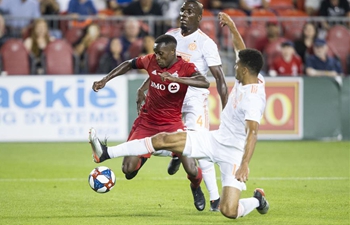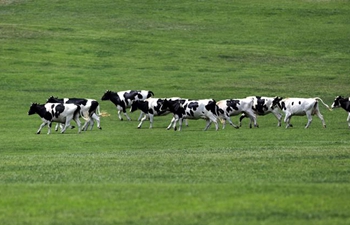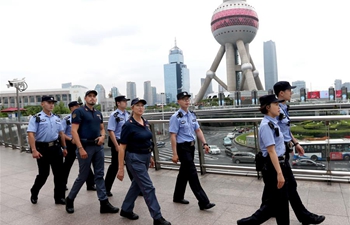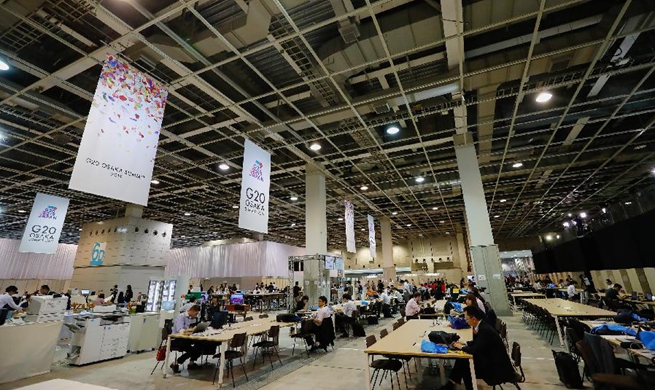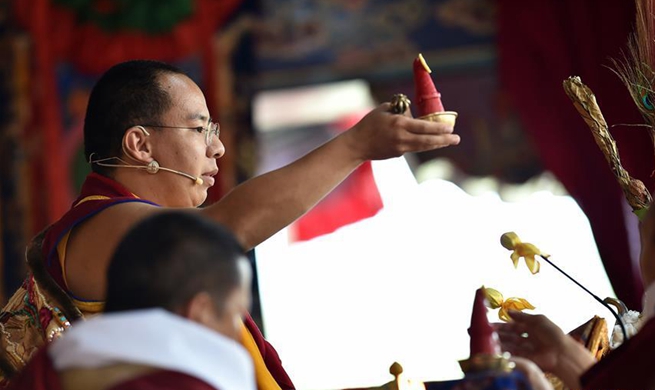SYDNEY, June 27 (Xinhua) -- While Rugby League is celebrated in Australia for its high pace, hard tackling and toughness, new research on Thursday has shown that the heavy contact regularly endured by players is likely having a serious effect on their brain health.
For the first time, researchers and clinicians from the Royal Prince Alfred Hospital, New South Wales State Health Pathology and the University of Sydney's Brain and Mind Centre, have discovered evidence of Chronic Traumatic Encephalopathy (CTE) in the brains of two former Rugby League players.
A well documented phenomenon in the U.S. among boxers and American Football players, the condition was originally referred to as "punch-drunk syndrome," with symptoms often similar to Alzheimer disease.
With the only known risk factor for CTE being repetitive head injuries in the form of concussions, participants in full contact sports are particularly at risk to the disease.
But with the only way to diagnose the condition being examination of the brain after death, there is still a great deal that remains unknown about athletes living with CTE.
"The changes in the two brains were distinctive, definitive, and met consensus diagnostic criteria for CTE," lead author and Head of the Molecular Neuropathology Program at the Brain and Mind Centre, Professor Michael Buckland said.
"I have looked at about 1,000 brains over the last 10 years, and I have not seen this sort of pathology in any other case before."
"The fact that we have now seen these changes in former rugby league players indicates that they, and likely other Australian collision sports players, are not immune to CTE, a disease that has gained such high profile in the United States."
While the two former players' identities have not been revealed, the report published Thursday in the international neuropathology journal Acta Neuropathologica Communications, indicated they had both played over 150 first grade games in the National Rugby League.
In order to learn more about the debilitating disease Down Under, Buckland established the Australian Sports Brain Bank in March last year to research CTE in brains donated by members of the public.
According to Buckland, over 80 athletes have offered to donate their brains for the research project.
"We encourage all athletes, their families and friends, to sign up," he said.
"It is only through the commitment from athletes and the sporting codes that we will fully understand the factors that cause CTE, how to minimise them, and how to effectively treat this disease."





